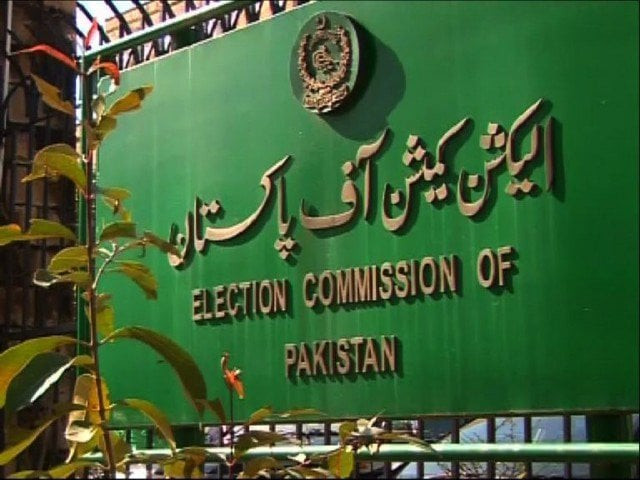
The Election Commission of Pakistan (ECP) found itself between a rock and hard place on Monday after the Supreme Court finally released its much-awaited majority judgment in the reserved seats' matter. The detailed judgment not only listed down the national poll body's failures, but further squeezed any room to defy the order.
The detailed verdict on the July 12 order, which had declared the Pakistan Tehreek-e-Insaf (PTI) a parliamentary party and entitled it to have reserved seats in the national and provincial assemblies, has come on the heels of a note released by the eight-member bench directing ECP to implement the judgment at the earliest.
However, in between the short and detailed order, two major developments have taken place: the Parliament swung into action and amended the Elections (Second Amendment) Act, 2024, which imposes new restrictions on party-switching by independent candidates; and the National Assembly Speaker Ayaz Sadiq wrote a letter to the ECP, urging it to respect parliamentary sovereignty in the allocation of reserved seats to PTI.
Thus, as irony would have it, the ECP has become a sandwich between Parliament and the Supreme Court in their ongoing face-off. On one hand, the SC majority ruling declared that ex-premier Imran Khan's PTI is eligible for seats reserved for women and minorities as ECP failed to fulfill its role in the general elections of 2024. On the other hand, the speaker has emphasised that the recent amendments to the elections act must be applied when the ECP allocates these contested seats.
Again, the SC detailed judgment has two major political impacts: if ECP implements it then PTI would emerge as the single largest party in the National Assembly; and, once that happens, the ruling parties would lose the much-desired two-third majority in the NA.
Since ECP hasn't yet implemented the SC judgment, the matter has once again triggered a debate about the political implications and what options are available to ECP amid a stand-off between the Parliament and SC.
Renowned legal expert Advocate Abdul Moiz Jaferii, while talking to The Express Tribune, said that the political implications of the judgment are clear, adding the National Assembly secretariat is wrong to have published the list of members which it reportedly did.
The expert said that "the speaker is inaccurately relying upon a retrospective amendment to the elections act as having undone the Supreme Court reasons for award of reserved seats".
In addition, Jaferii said that "the election commission is wrong to have assumed its parity with the Supreme Court as a constitutional institution and must obey the court's order." He concluded by saying that it falls upon the ECP to obey this order, not the government. "If it [ECP] does not do so or continues to drag its feet," he said, "it will be in contempt of court."
Some experts, however, believe that ECP can't simply ignore the amendments enacted by the Parliament. Pakistan Institute of Legislative Development and Transparency (PILDAT) President Ahmed Bilal Mehboob, while sharing his views for a similar story a few days ago, said that the Elections (Second Amendment) Act, 2024, will be applicable and ECP would not be able to proceed further till the time it is overturned.
Mehboob had said that he being an ordinary non-partisan person supports that PTI should get its due share of reserved seats in national and provincial assemblies in the true spirit of the constitution and law. However, he added that a section of judiciary and legal experts believe that due respect to the letter of the law is important too.
With the release of the detailed judgment, chances are that the ruling parties' members' review petitions pending against July 12 judgment will soon be taken up and then they would try to point out where the top court might have erred in its judgment.
On Monday, Minister for Law and Justice Azam Nazir Tarar, while swiftly responding to the detailed reasoning through a press conference, reiterated what the speaker has conveyed that parliament is fully empowered to make or amend laws. He added that the decision of joining any political party by independents is "irreversible" and how the reserved seats will be allocated to the party after the election act.
The issues of reserved seats had surfaced after the Sunni Ittehad Council (SIC), under whose banner PTI is sitting in the Parliament, approached the SC to challenge the ECP's decision of depriving it of the reserved seats and distributing the same among the ruling parties because it hadn't submitted the list for the reserved seats in time.
Despite getting relief from the top court, the ECP hasn't yet awarded the reserved seats to PTI. The ECP spokesperson was also approached for comments to gain an understanding of the ECP's thinking and whether the election watchdog would implement the SC ruling or follow what the NA speaker's stated in his letter. However, no reply was received till the filing of the story.






1732000005-0/Express-Tribune-(2)1732000005-0-270x192.webp)






1727078891-0/Copy-of-Untitled-(4)1727078891-0-270x192.webp)






COMMENTS
Comments are moderated and generally will be posted if they are on-topic and not abusive.
For more information, please see our Comments FAQ